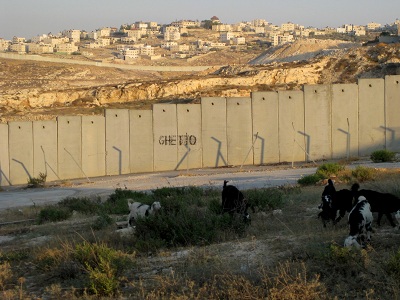
The Israeli government defended its “Regularization law” at the Israeli Supreme Court on Monday saying that the expropriation of Palestinian-owned land would benefit Palestinians because they would receive financial compensation for it.
The hearing came in response to two petitions filed by human rights groups demanding to strike down the law, which would pave the way for the retroactive legalization of dozens of illegal Israeli settler outposts.
The Regularization law, passed by the Israeli parliament in February, states that any settlements built in the occupied West Bank “in good faith” — without knowledge that the land upon which it was built was privately owned by Palestinians — could be officially recognized by the Israel government.
Israeli government says confiscation of Palestinian land through the law is legalhttps://t.co/Cdhcy7nMvC pic.twitter.com/Zn4W5j1P2u
— Ma'an News Agency (@MaanNewsAgency) August 22, 2017
Israeli NGO Peace Now said in a statement on Monday that in response to the petitions — one of which was submitted by Peace Now and fellow rights groups Yesh Din and ACRI — that the government justified the law by saying that the Palestinian landowners would receive monetary compensation.
“The government even went as far as to claim that the Palestinian landowners whose land was stolen by Israeli citizens actually benefit from the law, since they actually want to sell their lands, but can’t do so due to Palestinian laws,” Peace Now said, adding that the response also claimed that the illegal settlements in the West Bank “are a national interest that justifies confiscation of private lands.”
Israel also claimed that Palestinian laws that prohibit selling land to Israelis were “racist,” ACRI said in a statement.
ACRI wrote that the Israeli state’s response,
“completely ignores the extent of the continuous unlawful violations of rights of Palestinian landowners caused by illegal takeovers of their land for settlement purposes. It expresses Israeli policies to retroactively legalize illegal Israeli construction in the West Bank in contravention to Israeli law as well as International Humanitarian Law, while rewarding the perpetrators who had illegally taken over land not belonging to them.”
(MAAN, PC, Social Media)





